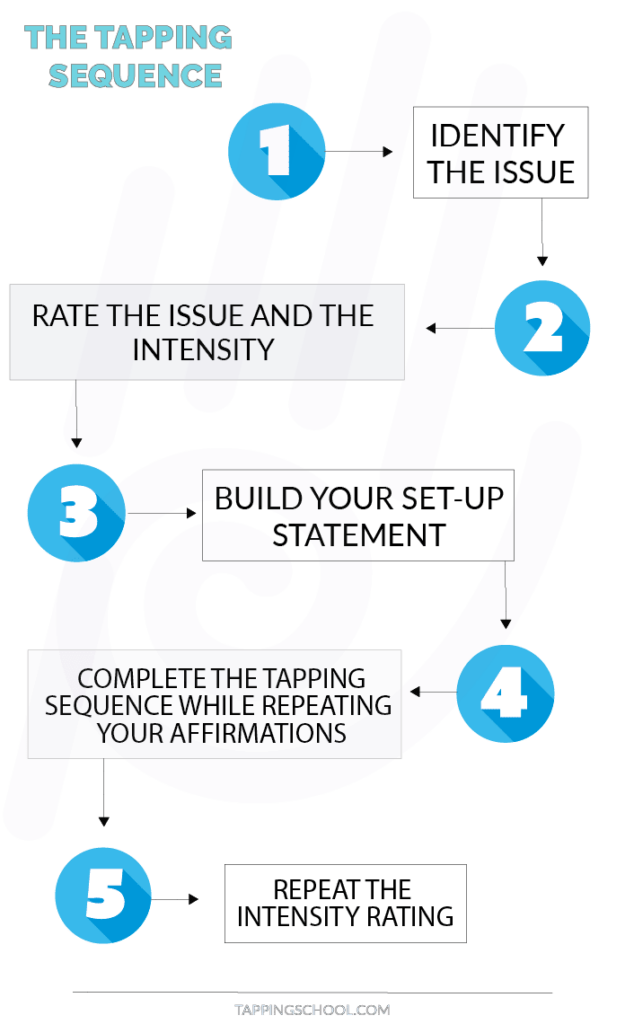
Introduction to Emotional Freedom Technique (EFT)
In today’s fast-paced and stressful world, it’s important to prioritize our mental well-being. Emotional Freedom Technique (EFT) has gained significant popularity as an effective approach to improving mental health. As an EFT practitioner, I have witnessed firsthand the transformative power of this technique. In this article, I will guide you through the role of an EFT practitioner, the benefits of working with one, and how to find a qualified practitioner to embark on your journey towards improved health.
Understanding the Role of an EFT Practitioner
An EFT practitioner is a trained professional who specialises in using Emotional Freedom Technique to help individuals overcome emotional and psychological challenges.
Their role is to provide a safe and supportive environment for clients to explore their emotions and release any negative energy that may be causing mental distress.
As an EFT practitioner, I work closely with my clients to identify specific issues or limiting beliefs that are holding them back from living a fulfilling life.


During an EFT session, I use a combination of talk therapy and tapping on specific acupressure points on the body to stimulate the body’s energy meridians.
This process helps to release emotional blocks and restore balance to the mind and body. As an EFT practitioner, I serve as a guide and facilitator, empowering clients to take control of their emotional well-being and create positive changes in their lives.
Benefits of Working with an EFT Practitioner
Working with an EFT practitioner can have numerous benefits for your mental well-being. One of the primary benefits is the ability to gain a deeper understanding of your emotions and the underlying factors contributing to your mental distress. Through the gentle and non-invasive techniques used in EFT, you can release negative emotions and replace them with more positive and empowering beliefs.
EFT can help to alleviate a wide range of mental health issues, including anxiety, depression, trauma, phobias and self-esteem issues. It can also be effective in managing stress, improving relationships, and enhancing personal growth.
By working with an EFT practitioner, you can develop a greater sense of self-awareness, emotional resilience, and well-being.
How to Find a Qualified EFT Practitioner
Finding a qualified EFT practitioner is essential to ensure you receive the best possible support and guidance on your journey towards better mental health. When searching for an EFT practitioner, it is important to consider their qualifications, experience, and approach to therapy. Look for practitioners who have received proper training and certification from reputable organisations.
You can start your search by asking for recommendations from friends, family, or healthcare professionals who may have had positive experiences with EFT practitioners. Online directories and professional associations are also valuable resources for finding qualified practitioners in your area. Take the time to read reviews and testimonials from previous clients to get a sense of the practitioner’s method and compatibility with your needs.
Once you have compiled a list of potential EFT practitioners, it is advisable to schedule a consultation or initial session to gauge their expertise and suitability. Use this opportunity to ask questions about their training, experience, and treatment approach.
Trust your instinct and choose a practitioner who makes you feel comfortable, supported, and confident in their abilities.
What to Expect in an EFT Session
Before attending your first EFT session, it is natural to feel a mix of excitement and apprehension.
Rest assured that your EFT practitioner is trained to create a safe and non-judgmental space for you to explore your emotions. The initial session will typically involve a detailed discussion about your background, current challenges, and goals for therapy.
During the session, the practitioner will guide you through the EFT process, which involves identifying specific issues or emotions and tapping on acupressure points on your body while focusing on these issues.
This tapping may seem unusual at first, but it is a key component of EFT and helps to release blocked energy within the body. The practitioner will work with you to uncover and address any underlying beliefs or emotions that may be contributing to your mental distress.
Throughout the session, the practitioner will encourage open and honest dialogue allowing you to express your thoughts and feelings freely.
They will provide guidance and support as you navigate through the process of emotional release and transformation. Remember, each session is unique to your individual needs, and the practitioner will tailor the approach accordingly.
Throughout the session, the practitioner will encourage open and honest dialogue allowing you to express your thoughts and feelings freely.
They will provide guidance and support as you navigate through the process of emotional release and transformation. Remember, each session is unique to your individual needs, and the practitioner will tailor the approach accordingly.
Exploring the Different Approaches and Techniques Used by EFT Practitioners
While the core principles of EFT remain consistent across practitioners, there can be variations in the techniques and approaches used. Some practitioners may combine EFT with other therapeutic modalities, such as cognitive-behavioral therapy (CBT) or mindfulness techniques, to enhance the effectiveness of the treatment.
It is important to find a practitioner whose approach resonates with you and aligns with your goals and preferences. Take the time to research different practitioners and their methodologies to find the one that feels like the right fit for you. Remember, EFT is a collaborative process, and working with a practitioner who understands your unique needs can greatly enhance the outcomes of therapy.
Case Studies and Success Stories from EFT Practitioners
One of the most powerful aspects of EFT is the success stories and transformative experiences shared by both clients and practitioners. These case studies highlight the potential of EFT to bring about profound changes in mental well-being.
For example, I have worked with clients who have overcome debilitating anxiety and panic attacks through EFT. By addressing the root causes of their anxiety and releasing the associated emotional trauma, they were able to regain control over their lives and experience a newly found sense of calm and confidence.
Another client I worked with struggled with low self-esteem and a persistent fear of failure. Through EFT, we identified and released deep-seated beliefs and childhood traumas that were contributing to these feelings. As a result, they were able to develop a more positive self-image and pursue their goals with renewed optimism and self-belief.
These stories are not isolated incidents but rather representative of the transformative potential of EFT. They serve as a testament to the power of this technique in promoting mental well-being and personal growth.
The Science Behind EFT and Its Impact on Mental Well-being
Despite its relatively recent emergence, EFT has garnered substantial scientific interest and validation. Research studies have demonstrated the effectiveness of EFT in reducing symptoms of anxiety, depression, and post-traumatic stress disorder (PTSD).
EFT works by combining elements of cognitive therapy, exposure therapy, and acupressure. When we experience emotional distress, it can disrupt the body’s energy system, leading to negative emotions and physical symptoms. By tapping on specific acupressure points, EFT helps to rebalance the body’s energy and alleviate the associated emotional distress.
Furthermore, brain imaging studies have shown that EFT can have a positive impact on the brain’s limbic system, which is responsible for regulating emotions. These findings support the notion that EFT can bring about tangible changes in the brain and contribute to improved mental well-being.
EFT Practitioner Training and Certification
To become a qualified EFT practitioner, individuals undergo specialised training and certification programs. These programs provide in-depth knowledge of the principles and techniques of EFT, as well as practical experience in working with clients.
When choosing an EFT practitioner, it is essential to ensure they have received proper training from a reputable organization. Look for practitioners who have completed comprehensive training programs and have ongoing professional development to stay updated with the latest advancements in the field.
Certification from recognized organizations serves as a testament to the practitioner’s competence and adherence to ethical standards. It ensures that they have met the necessary requirements and are equipped with the skills and knowledge to provide effective EFT therapy.
Conclusion: Taking the First Step Towards Transforming Your Mental Well-being with an EFT Practitioner
Embarking on a journey towards better mental well-being is a courageous and transformative step. By working with an EFT practitioner, you can tap into the power of Emotional Freedom Technique to release emotional blocks, overcome limiting beliefs, and create positive changes in your life.
Take the time to research and find a qualified EFT practitioner who resonates with you and your goals.
Book a free consultation or sign up for a session to experience the potential of EFT firsthand. Remember, you deserve to live a life filled with emotional freedom and well-being.
